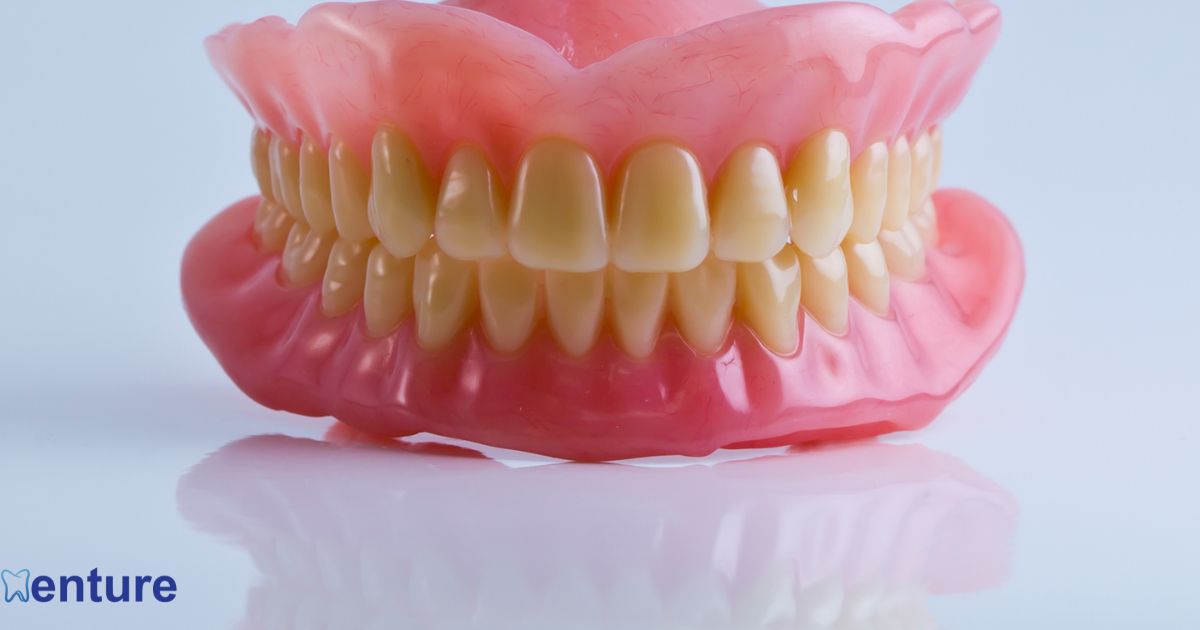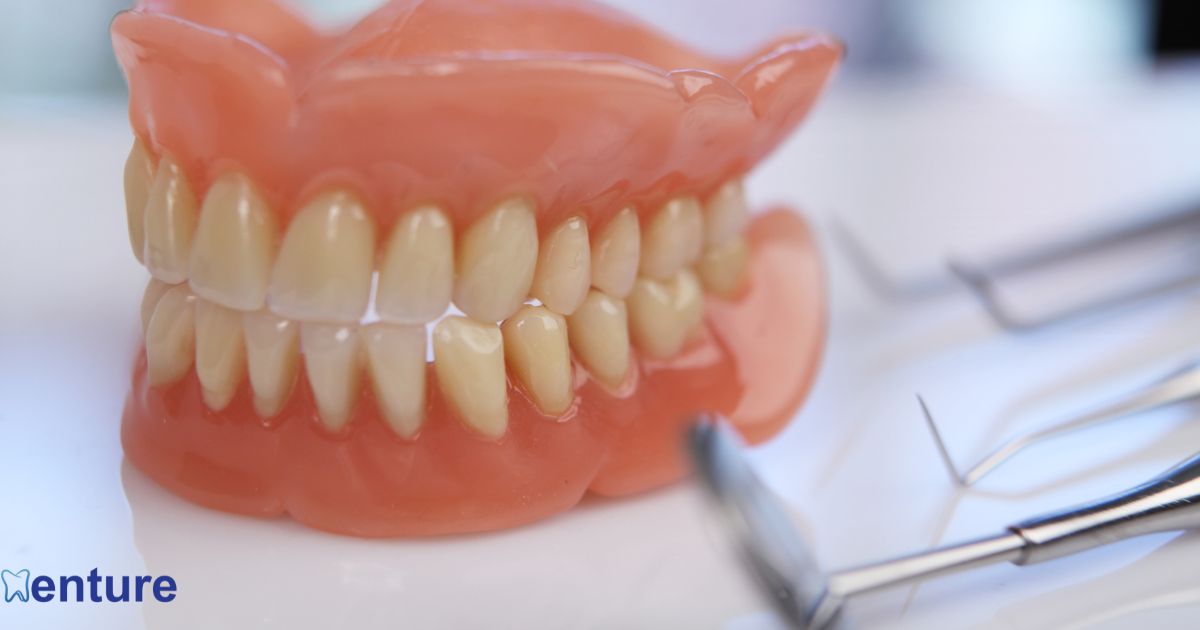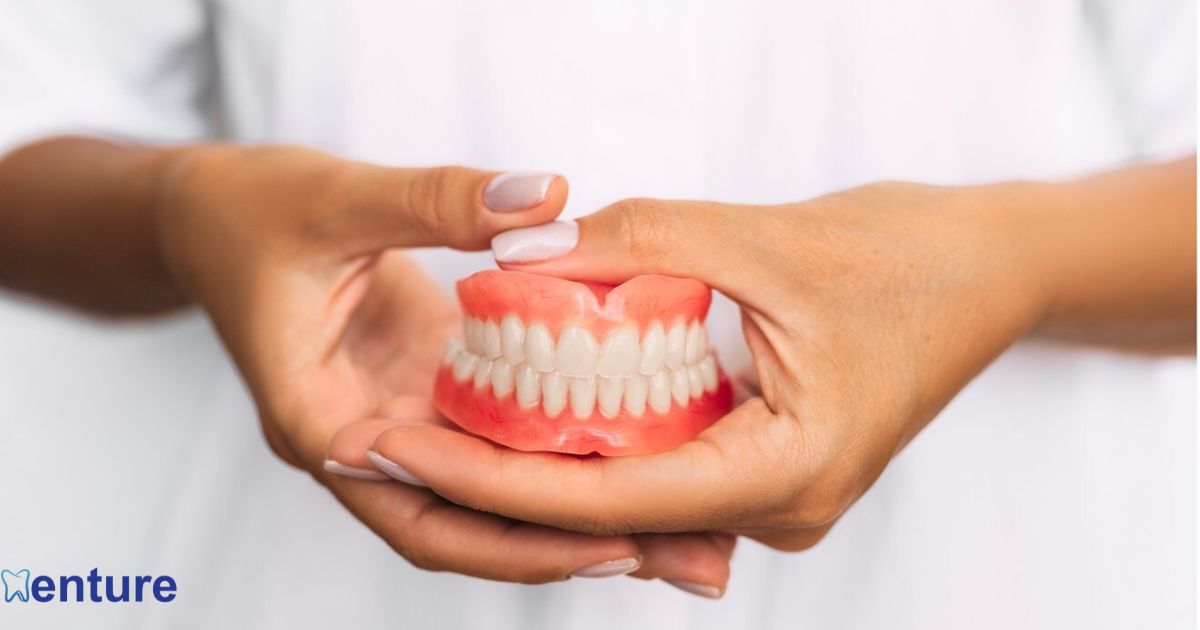Dentures are a common solution for individuals who have lost their natural teeth and desire a restored smile and improved oral function. Many people wonder how many teeth are typically included in dentures.
In this article, we will explore the various types of dentures and the number of teeth they contain. Whether you are considering partial dentures, which replace only a few missing teeth, or full dentures, which replace an entire arch of teeth, understanding the options available to you is essential.
We will also discuss the different components of dentures and the process of creating them. Additionally, we will examine the pros and cons of dentures and explore alternative solutions. So, let’s delve into the world of dentures and discover the answer to the question, “How many teeth are in dentures?”
Key Takeaways
- The number of teeth in dentures is determined by the individual’s oral health condition and the recommendation of a dental professional.
- Dentures can be partial or complete and are custom-made replacements for missing teeth, providing functionality and aesthetics.
- Partial dentures can be removable or fixed, depending on the materials used, and are used to replace a few missing teeth, taking into consideration the condition of remaining natural teeth and overall oral health.
- Full dentures can be used for everyday use, special events, or as temporary solutions, and are designed to suit individual needs and lifestyle. They consist of a base, artificial teeth, and connectors that work together to restore oral function and improve appearance.
Minimum Number of Teeth in Dentures
The minimum number of teeth in dentures is typically determined by the individual’s oral health condition and the recommendation of a dental professional. Dentures are custom-made replacements for missing teeth and can be either partial or complete.
Partial dentures are designed to replace a few missing teeth, while complete dentures are used when all teeth are missing. The number of teeth in dentures will vary based on the specific needs of each individual, ensuring optimal functionality and aesthetics.
Types of Partial Dentures
Partial dentures come in different types and are used to replace a few missing teeth in an individual’s oral cavity. There are two main types of partial dentures: removable and fixed. Removable partial dentures are made of acrylic or metal and can be taken out for cleaning.
Fixed partial dentures, also known as dental bridges, are cemented to the adjacent teeth and cannot be removed. Both types of partial dentures provide a natural appearance and restore functionality to the mouth.
Considerations for Partial Denture Types
When choosing the appropriate partial denture type, there are several important considerations to take into account. These considerations include the number of missing teeth, the location of the missing teeth, the condition of the remaining natural teeth, and the overall oral health of the patient.
It is crucial to consult with a dentist to determine the best type of partial denture that will provide the most comfortable fit and natural appearance. Now, let’s move on to discuss the different types of full dentures.
Types of Full Dentures
There are various types of full dentures available, commonly classified by their frequency of use. These include:
- Daily dentures: Designed for everyday use, providing comfort and functionality for regular activities.
- Occasional dentures: Intended for occasional use, such as during special events or social gatherings.
- Emergency dentures: Used in emergency situations, providing a temporary solution until a permanent denture can be made.
Each type serves a specific purpose, ensuring individuals have dentures that suit their needs and lifestyle.
Parts of Complete Dentures
The components of complete dentures include the base, artificial teeth, and connectors. The base is made of acrylic resin or metal and provides support and stability. Artificial teeth are made of acrylic or porcelain and are designed to look and function like natural teeth.
Connectors are used to attach the artificial teeth to the base. These components work together to create a comfortable and functional set of dentures that restore oral function and improve appearance.
Advantages and Disadvantages of Full Dentures
One of the key aspects to consider when discussing the advantages and disadvantages of full dentures is the impact they can have on oral function and appearance.
- Advantages:
- Restores ability to chew and speak properly, improving overall quality of life.
- Enhances facial appearance and restores self-confidence.
- Affordable option for replacing missing teeth.
- Disadvantages:
- May require adjustment period and may feel uncomfortable at first.
- Can affect taste and restrict certain food choices.
- Requires regular cleaning and maintenance for optimal oral health.
Full Vs. Partial Dentures
When comparing full dentures to partial dentures in Utah, it is important to consider the extent of tooth replacement required. Full dentures are used when all natural teeth are missing, providing a complete set of teeth for both the upper and lower jaws.
On the other hand, partial dentures are used when only some teeth are missing, with the remaining natural teeth serving as anchors. Each type of denture has its own advantages and considerations, and consulting with a dentist is crucial to determine the most suitable option.
How Dentures Are Made
To properly understand how dentures are made, it is important to consider the specific process utilized by dental professionals. The process involves several steps, including:
- Impressions: Dental impressions are taken to create an accurate mold of the patient’s mouth.
- Wax try-in: A wax model of the dentures is created for the patient to try on and make any necessary adjustments.
- Final fabrication: The dentures are fabricated using a combination of acrylic, metal, and porcelain materials, ensuring a comfortable fit and natural appearance.
This meticulous process ensures that dentures are custom-made to provide individuals with a confident and functional smile.
Pros and Cons of Dentures
Dentures offer both advantages and disadvantages for individuals seeking a replacement for missing teeth. Here is a table that provides a summary of the pros and cons of dentures:
| Pros of Dentures | Cons of Dentures |
|---|---|
| Affordable | Can feel bulky |
| Restores smile | May require adjustments |
| Improves chewing ability | Requires daily maintenance |
While dentures are a cost-effective option that can restore your smile and improve chewing ability, they may feel bulky and require adjustments. Dentures require daily maintenance to ensure proper hygiene. Consider these factors when deciding if dentures are the right choice for you.
Alternatives to Dentures
One alternative to dentures is the use of dental implants. Dental implants are titanium posts that are surgically placed into the jawbone to support artificial teeth. They provide a more permanent and natural-looking solution compared to dentures. Benefits of dental implants include:
- Improved appearance and confidence with a natural-looking smile
- Enhanced speech and ability to eat comfortably
- Long-lasting and durable, with proper care and maintenance
Choosing dental implants can provide a sense of belonging by restoring the appearance and function of natural teeth, giving individuals the confidence to smile and engage in social activities without the worry of denture complications.
Conclusion
In conclusion, dentures offer a practical solution for individuals with missing teeth. They can be either full or partial, depending on the extent of tooth loss. Dentures are carefully crafted to mimic the appearance and function of natural teeth, giving individuals the confidence to smile and eat comfortably.
While there are alternatives to dentures, they remain a popular choice due to their affordability and accessibility. In the world of dental restoration, dentures are like a lifeline, restoring not only the aesthetics but also the functionality of a complete smile.













